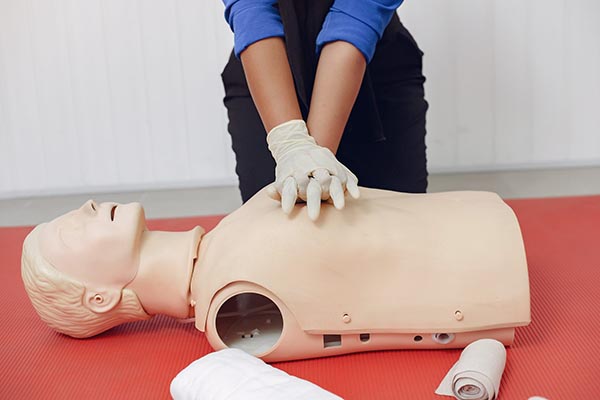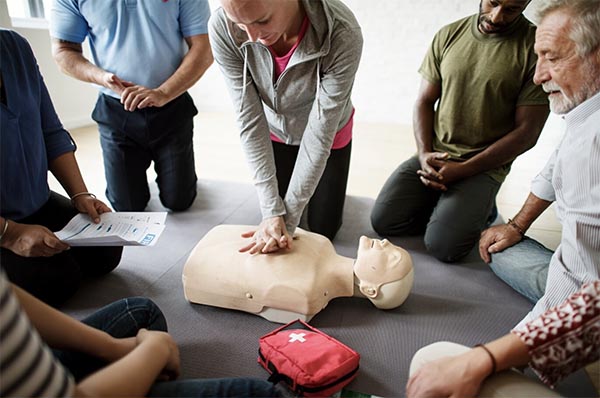
In today’s fast-paced world, staying updated with life-saving skills such as CPR (Cardiopulmonary Resuscitation) is crucial. Whether you are a healthcare professional, a teacher, a coach, or simply someone who wants to be prepared to help in emergencies, understanding CPR certification renewal frequency is essential. This guide will help you navigate how often you need to renew your CPR certification and why it’s important to stay current.
Before diving into renewal timelines, let’s briefly discuss what CPR certification entails. CPR is a vital emergency procedure that combines chest compressions and artificial ventilation to maintain circulatory flow and oxygenation during cardiac arrest. CPR certification equips individuals with the skills and knowledge to perform these life-saving techniques effectively.

CPR certification is not just a requirement for certain professions; it is a vital skill that can help save lives. When someone experiences cardiac arrest, their survival depends significantly on how quickly and effectively CPR is administered. According to the American Heart Association (AHA), immediate CPR can double or triple the chances of survival after cardiac arrest.
The frequency of CPR certification renewal varies depending on the organization that provided the certification. However, most guidelines suggest that CPR certification be renewed every two years.
Renewing your CPR certification is a straightforward process. Here’s how you can do it:
Select a recognized organization like CPR Classes Near Me, or another local accredited provider. Ensure that their certification is widely accepted and meets industry standards.
Sign up for a CPR renewal course. These courses are typically shorter than initial certification courses and focus on refreshing your skills and knowledge.
Participate actively in the renewal course. You will likely need to pass a practical and written assessment to demonstrate your proficiency in CPR techniques.
Upon successful completion of the course and assessments, you will receive your renewed CPR certification. Make sure to keep this document accessible for future reference or employment requirements.

While renewing your certification every two years is essential, staying prepared in between renewals is equally important. Here are some tips:
Renewing your CPR certification every two years is a small yet significant commitment to ensuring that you are ready to save lives when it matters most. By staying current with the latest techniques and guidelines, you can confidently provide life-saving assistance in emergencies. Whether required for your profession or pursued out of personal responsibility, CPR certification is a valuable skill that benefits both you and your community. Make it a priority to renew your certification and encourage others to do the same, fostering a safer environment for everyone.
Ready to make a difference? Don’t wait for an emergency to realize the importance of CPR skills. Head over to CPR Classes Near Me and enroll in a CPR certification course today. Whether you’re a healthcare worker, an educator, or someone who simply wants to be prepared, gaining CPR certification is a vital step towards ensuring the safety and well-being of those around you. By signing up for a course, you’re not just learning a new skill—you’re equipping yourself to save lives. Act now and join a community of responsible individuals ready to step up when it counts the most.
Our primary goal is to ensure that you receive a top-quality CPR/First Aid certification. With our in-person training in Austin, you can learn CPR and BLS in just one class. Your presence is all that’s needed to continue with your lesson! During your session, you will complete all the live-training components necessary to ensure you receive your AHA Healthcare Provider certification card.
Our CPR Classes in Austin are discounted to $59.95 (saving you $20), and our CPR + First Aid Class is offered at $79.95 (also saving you $20). When looking for CPR Classes, ensure to check for the American Heart Association seal. Other sites might seem cheaper but frequently lack the official training credentials demanded by employers.
Upon successful completion of the course, you will obtain a CPR certification that is valid for two years. The AHA CPR certification is recognized with the highest acceptance rate among employers nationwide.
Indeed! Enroll in any CPR Certification Austin BLS course to extend your certification for an additional two years. The in-person BLS course and the Renewal Class are identical.
Anyone capable of completing the course independently should consider pursuing CPR training and CPR Certification. There is no minimum age restriction for obtaining a CPR certification in Austin through the American Heart Association (AHA)..
CPR training needs to be carried out in person to guarantee its effectiveness. Our experienced instructors offer an engaging and dynamic learning experience. Typically, employers do not recognize CPR certifications that are obtained solely through online courses.
All authorized American Heart Association training centers are obligated to display the entire video. After a three-hour session with CPR Classes Near Me Austin, your BLS CPR eCard will be promptly issued by the instructor on the same day!